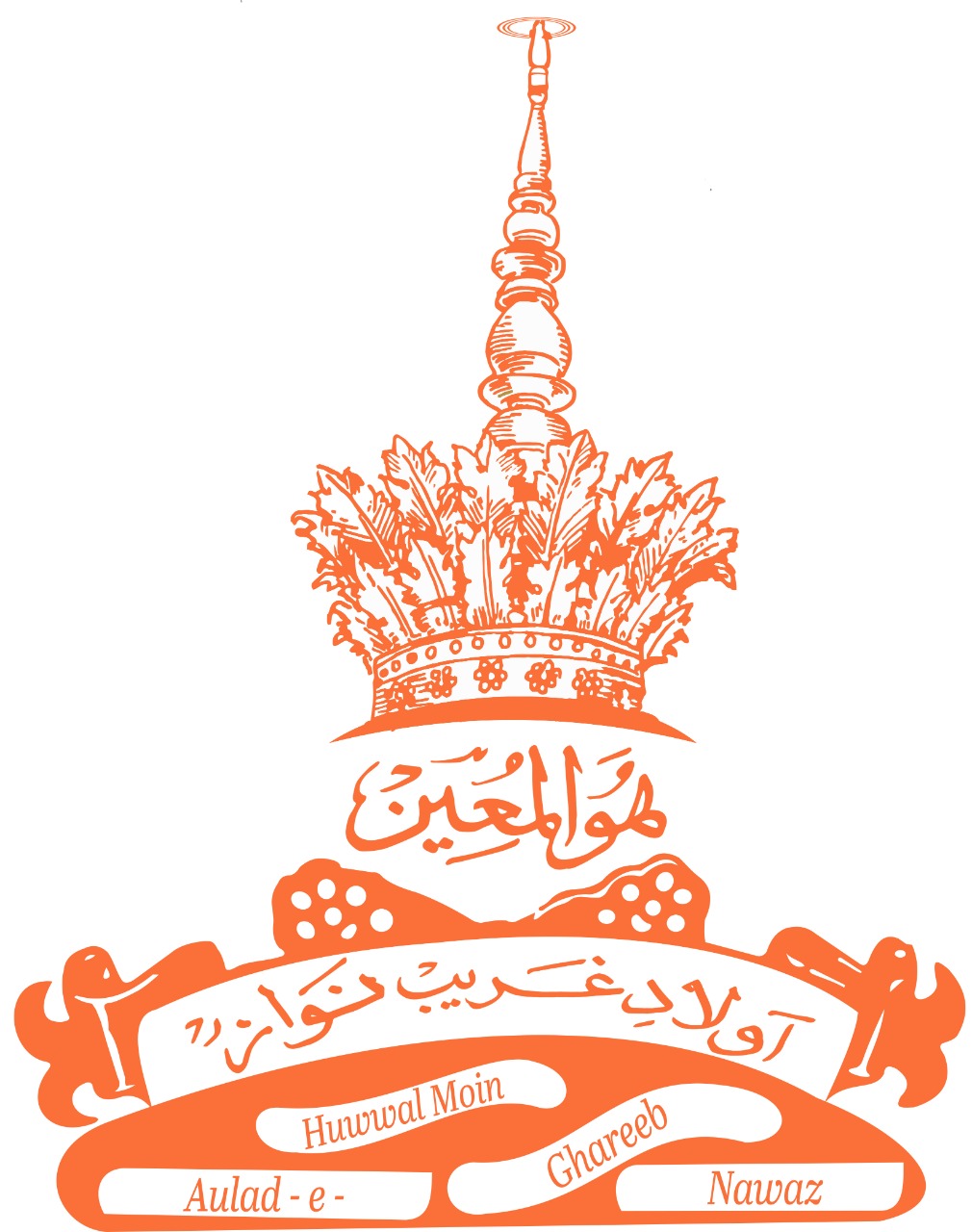BIOGRAPHY OF KHAWAJA SAHIB
The name of Hazrat Khawaja Moinuddin Chishti, the great saint of Ajmer,
is a house-hold name among the people of both India and Pakistan. Not only
at his annual Urs which is held in the month of Rajab but throughout the year people
from all over the country, belonging to all religions, resort to his Dargah or “resting
place” to seek his spiritual blessings. Such is the esteem and veneration in which
he has been held for over 800 years.
The Khawaja Sahib was bom in the town of Sanjar in Sistan on the
18th April 1142-43 A.D. to parents directly descended from the Holy Prophet
of Islam. He received his early education and training from his father. But as
he grew into manhood, he came into touch with various leading scholars of the
Middle East and made a profound mark in scholarship. It was at this stage
that he came under the influence of the great mystic of Islam, Hazrat Khawaja
Usman Haruni, who initiated him into the spiritual mysteries of the Chishtiya
order which had already been founded by Khawaja Abu Ali Ishaq Shami at a
place called Chisht situated in Khurasan. The young seeker after Truth had
the opportunity of being introduced to Sheikh Abdul Qadir Jilani of Baghdad,
the founder of the Qadriya order. Sheikh Shahabuddin Suhrawardy, the founder
of the Suharwardiya order, Khawaja Auhaduddin Kirmani and Khawaja Mahmud
Isfahani — great names in the illustrious galaxy of Muslim saints.
This was the time when the whole of the Middle East had been laid
waste by the ruthless invasion of the Tartars. The havoc wrought by this
catastrophe to the Muslim culture and civilization of the Middle East was so
great that his Preceptor or Pir enjoined on the young Moinuddin to go round
the affected areas and spread his message of love, and offer the striken people
every cheer and hope. For several years, the Khawaja Sahib spent his life in the
midst of these ruins going round from place to place and re-organising the social
and moral life of the people and leaving behind at each centre a disciple of his
own to carry on his work of social reconstruction and spiritual uplift.
It was after having completed his mission in the Middle East that he
turned his attention to India and eventually settled down at Ajmer and established
a centre there of the Chisti order of Sufis or mystics whose branches are now to
be found in every part of this country.
The impulse which directed his steps to India, according to a tradition
recorded in history, was in the form of an inspiration received by him at the
resting place of the holy Prophet in Medina which he had visited during a
pilgrimage to Mecca. The well-known utterance of the holy Prophet touching
India — the utterance, “I feel cool breezes coming to me from the land of Hind”,
came to his mind in his reverie at the Pronhet’s tomb, and he felt that the sudden
awakening in him of this old prophetic utterance was indeed a call for him to
proceed to India, and devote the rest of his life to the cause of spiritual uplift
among her people.
Khawaja Sahib made his first halt at Lahore where the great scholar and
saint. Sheikh Ai-Hajwari, had lived and worked. For forty days the migrant
sequestered himself in the cloister of this Saint and received spiritual illumination
from him. Khawaja Saheb then went to Multan which was, for generations together,
a rendezvous of saints and scholars from the Middle East and it was from here
that he left for Ajmer, via Samana, which he made the centre of his subsequent
activities and where he founded the Indian centre of the Chistiya Order whose
spiritual mission is to shatter the walls which stand between man and man for
diverse reasons, and knit them together in a common bond of love regardless
of religious or creedal afl&liations, since they believe and preach that God is wholly
the God of Love and that the entire creation in all its forms constituted but a
single family.

